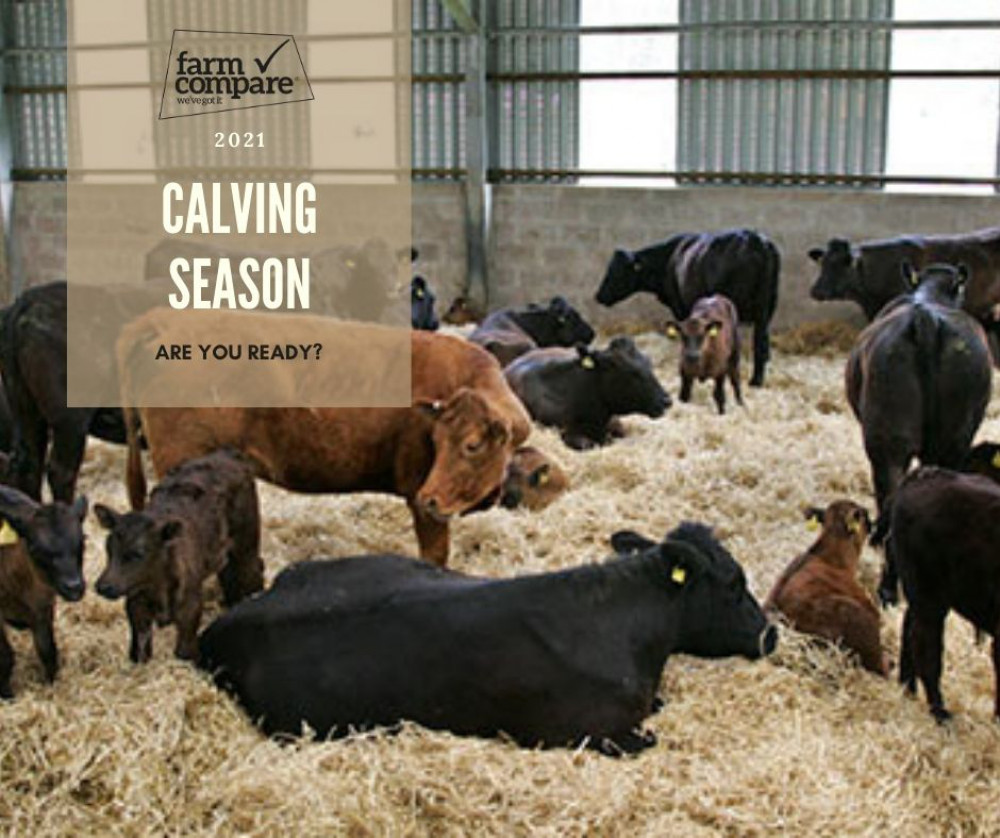2021 Calving Season Checklist

Farm Compare checks in with KCF Agri Healthcare to discuss their advice for suckler farmers who will be starting their calving season.
KCF provide natural and effective animal health products & supplements with the aim of providing natural solutions to major problems.
Let's hear about their checklist to help reduce stress this calving season.
⇒ Use scan results to know what dates your cows are calving – remember any cows carrying twins may calve earlier.
⇒ Have fit but not fat cows/heifers. If their condition needs to be adjusted, ensure that this is done six weeks before calving. Do not starve cows in the final few weeks as they will not have the strength to calve and won’t have adequate colostrum once calved.
⇒ Ensure to feed a recommended pre-calving mineral high in magnesium, phosphorous, selenium, and iodine for at least six weeks pre-calving. This will ensure the cow will calve easier and a more vigorous calf.
⇒ Ensure that all your cows’ vaccinations are up to date and given within the correct time period so that adequate antibodies are in the colostrum.
⇒ Control liver fluke in cows where necessary. Consider using KCF Paracide which is a natural antibiotic-free drench that is safe to use with in-calf cows/heifers.
⇒ Check your calving sheds are in good condition and that all equipment is in good working order.
⇒ Clean and lime slats – this will help keep cows clean. Dirty cows will lead to scours and joint ill in calves.
⇒ Lime and disinfect calving pens and ensure that they are well bedded with clean, dry straw. Remembering to clean and disinfect pens between each use.
⇒ Make sure to have all the calving essentials to hand in case needed – spare calf colostrum, stomach tubes, bottles, navel spray, and KCF Scouraid to help give any scouring calves the best possible chance of recovery.
KCF products are available to purchase Here on Farm Compare.
Or if you would like to discuss any of the advice offered please let us know Here and we will connect you with a product specialist.
© 2025 Farm Compare Ltd. All rights reserved| T&Cs | Privacy policy | Website by Reflex Studios

This website was developed with support from Priority 6 (LEADER) of the Northern Ireland Rural Development Programme 2014-2020 by the Department of Agriculture, Environment and Rural Affairs and the European Agricultural Fund for Rural Development: Europe investing in rural areas

